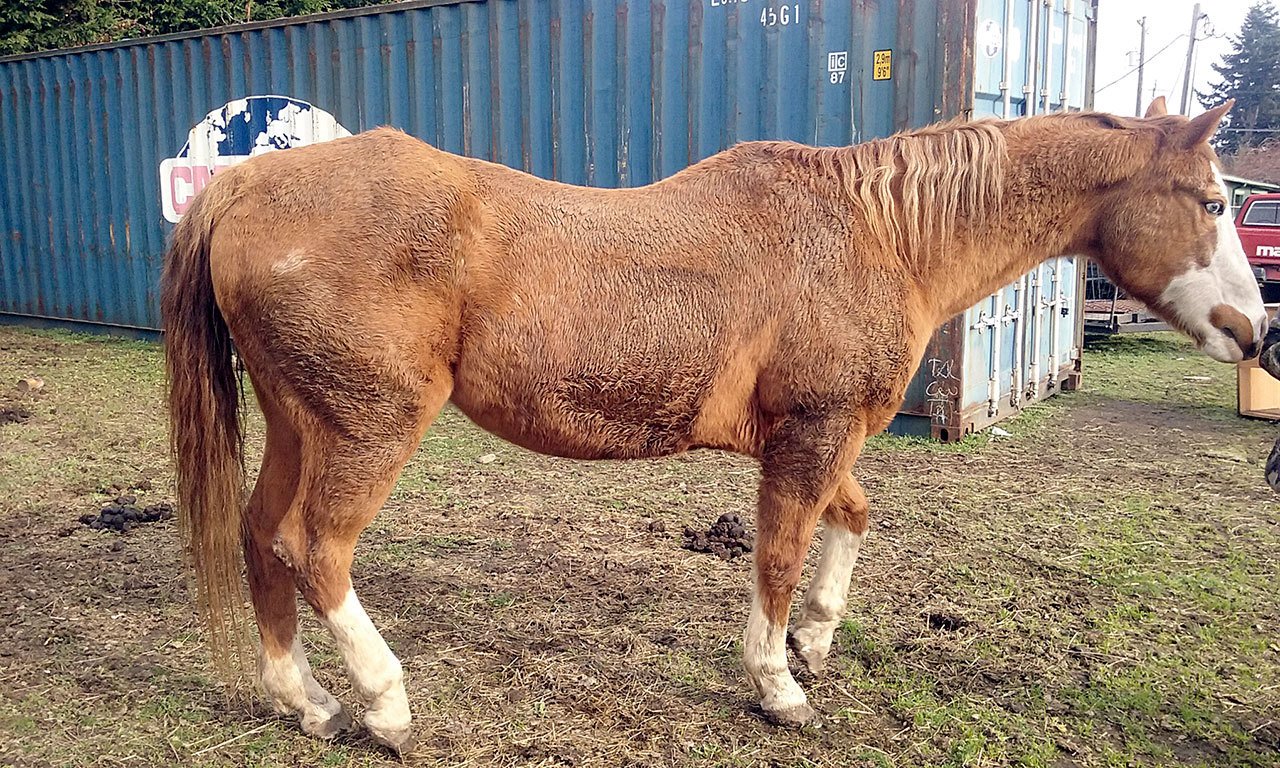EVER FELT AS if you’re dying of thirst? It literally could happen.
Water. All creatures great and small need it to survive.
In general, both human and horses can go two to three days without any water before dehydration, and then permanent damage sets in. By day seven, most will perish.
So what happens when the temperature plummets to the point our horses’ water sources freeze over?
Recently, we experienced at least two weeks of freezing weather.
I worry over how many of our animals suffered when their sources of water froze.
It’s an easy fix if you have electricity. There are many types of heated buckets and stock-tank de-icers available at local feed stores.
If that’s not an option, there is the tried-and-true method of trudging out to your water troughs twice a day with something to break up the ice and then throwing in a bucket of hot water.
Yep, it takes a bit of work, but we’re all responsible for our animal’s well-being, right?
Sometimes an owner just needs a simple reminder or a little help.
I smile thinking of my friend Lisa Parrish relating how she bought a heated water bucket for her neighbor’s cats after they repeatedly came to her yowling and she noticed their water dish was frozen over.
As the founders of the horse rescue operation Olympic Peninsula Equine Network, Valerie Jackson and Diane Royall have a great many horses, in multiple pastures, to provide fresh water for.
Royall told me she tries to keep rotating one tank heater between four different troughs. She finds herself constantly breaking ice and has something to boil water with to add warm water to a trough.
“Our older horses get warm water on their hay pellets with a dash of salt,” she said.
“At some point, we hope to add another outlet for another heater.”
Jackson pointed out if the water temperature is below 40 degrees, it can give them an upset stomach (no small matter in a horse), and if they don’t drink enough, it can also lead to bladder infections.
“We try to put compatible horses in together, use larger troughs and haul buckets of warm water twice a day to the horses that must be kept separate,” Jackson said.
“It’s crucial to keep the horses hydrated during this cold weather. Horses won’t drink enough water if it’s too cold, so just breaking the ice for them isn’t always good enough.”
Non-electric
For a great many years, folks have managed to keep the water from freezing over without electricity or propane.
I haven’t tried these techniques myself, but I like the idea of flavoring the water with some apple cider or mixing molasses with warm water and then pouring it into the water trough.
The sugars in the molasses act as a natural antifreeze. The water will get slushy but typically won’t freeze, and the molasses encourages the horses to drink.
Some use solar power; others use a propane system. Whatever works for you, just do it.
Anytime a horse faces a rapid decrease in water consumption, he’ll be more prone to colic, especially if a good part of his diet is dried forage.
Faucets
Always do what you can to protect your faucet from freezing, even if it’s a frost-free faucet. Ideas to protect it including wrapping an old horse blanket, bubble wrap or Styrofoam around it.
Most of us fill our troughs or buckets with water from a garden hose attached to an outdoor faucet.
After watering, we know to unhook the hose and drain it completely so it’s ready to use the next time.
A clogged hose could mean putting off watering for another day, perhaps hoping the temperature rises enough to thaw it. Please don’t wait.
If it’s clogged, just bring the hose inside to thaw in your bath or shower. Lives are depending on you.
Remember to keep just a plain white salt block next to the water trough, or add a few tablespoons a day to their feed to encourage drinking.
Putting salt and water in plastic jugs or bottles and placing them in a bucket can work, too, to give access to water because salt water doesn’t freeze.
The theory is the animal pushes down on the jug to get access to the water. Works great unless you have a dog like I do that thinks it’s great fun to pluck those jugs out to play with them.
The best way to encourage your horse to drink is to provide it with fresh water at all times.
Frequently checking, scrubbing and refilling water troughs and buckets is part of the nitty-gritty of horse-keeping.
Find out how you can help OPEN by visiting its website www.olypenequine net.org or its Facebook page. Call 360-207-1688 or mail donations to P.O. Box 252, Sequim, WA 98382.
________
Karen Griffiths’ column, Peninsula Horseplay, appears the second and fourth Sunday of each month.
If you have a horse event, clinic or seminar you would like listed, please email Griffiths at kbg@olympus.net at least two weeks in advance. You can also write Griffiths at PDN, P.O. Box 1330, Port Angeles, WA 98362.

